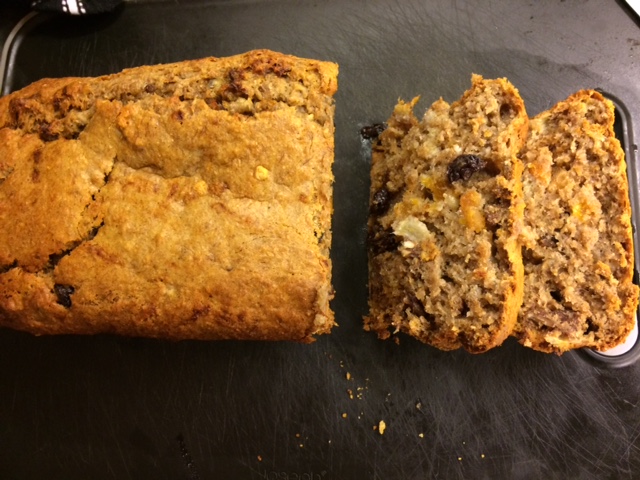The health benefits of chocolate and recipes for National Chocolate Week (Part 2)
As it’s National Chocolate Week (9th-15th October) it seemed a good opportunity to speak to EIS Nutritionist Terri Paulson to learn about the health benefits of chocolate and try a couple of easy recipes for the lunchbox.
Health benefits of chocolate:
Chocolate can be eaten as part of a well-balanced diet. Choosing dark chocolate (70-85% cocoa) over milk or white is a better choice as it can help to reduce those ‘sweet cravings’ without as much sugar. There are various proposed benefits of cocoa such as a reduced risk of cardiovascular disease, improved blood flow and providing a source of antioxidants.
Of course, this doesn’t mean we should eat it every day by the bucket load because it still comes with a hefty amount of calories. Aim to buy good quality chocolate with a high percentage of cocoa, keep it as a treat and importantly, enjoy it!

Banana & chocolate loaf:
This loaf provides plenty of carbohydrates to help replenish energy after training. It’s a great energy booster during a heavy training block.
Ingredients:
200 g wholemeal flour
1 heaped tbsp. cinnamon
2 tsp baking powder
½ tsp bicarbonate of soda
2-3 ripe bananas
120 ml rapeseed oil
2 eggs
150 g honey
100 g dried fruit (you choose but date or raisins work really well)
50 g dark chocolate chunks
Method:
1. Mash banana & add oil, honey & whisked eggs
2. Add sieved flour, baking powder, bicarbonate of soda & cinnamon
3. Mix thoroughly
4. Add dried fruit & chocolate
5. Grease & line a loaf tin
6. Add mix into tin & bake on 150°C for ~1 h 20 min
7. Slice to serve
Serving suggestion/alternatives:
Switch chocolate for nuts or add as an extra for crunch – great fruit & nut combinations include pecan & raisin, almond & date, hazelnut & apricot
Serve with a thin layer of jam & a dollop of yoghurt for a dessert
Wrap in foil for bike ride fuelling
Terri is a Performance Nutritionist at the EIS for Canoe Sprint, Short Track Speed Skating and England Netball. She’s been at the EIS for two and a half years, having originally made EIS contacts through the Skills4Performance workshop.